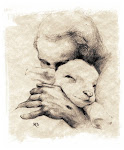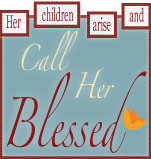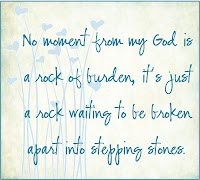
Thursday's Therapy
Unpackaging The Princes'
Top Ten TRUTHS About Child-Loss Grief
TRUTH #7a) Child-Loss Grief is pervasive throughout ... our body.
#7) Child-Loss Grief is pervasive and invasive throughout your system. It is multi-dimensional, affecting your body, soul, mind, heart, and spirit. Your old beliefs about God, and about How the world works will be challenged.
Child-Loss Grief is pervasive, affecting your body, soul, mind, heart, and spirit.
On this Thursday's Therapy, we examine how Child-Loss Grief often affects our bodies:
30 Major Reactions Physically Indicating Anxiety After the Traumatic Death of Your Child
Motor Tension
- Trembling, shaking, twitching, nervous energy, "jumpy," foot/leg shaking, finger drumming
- Muscle tension, aches, soreness
- Teeth grinding, clenched jaw
- Easily fatigued, exhaustion
- Headache
- Restlessness and searching for something to do
Autonomic Hyperactivity (Being "revved up")
- Anxiety, tension, nervousness
- Heart palpitations, rapid heartbeat
- Shallow and rapid breathing, shortness of breath
- Numbness, tingling sensations
- Smothering sensations
- Dizziness, unsteady feelings, faintness, lightheadedness
- Dry mouth
- Sweating or cold, clammy hands
- Hot flashes or chills
- Chest pain, pressure, or discomfort
- Nausea, diarrhea, other abdominal distress
- Frequent urination
- Tightness in the throat, difficulty swallowing, feeling of something stuck in the throat, choking
- Digestive disturbance (such as upset stomach)
- Stress cardiomyopathy (aka "broken heart syndrome" - when you feel all the symptoms of a heart attack but it is not an actual heart attack
Vigilance and Scanning
- Heightened arousal (hyperarousal)
- Agitation
- Sense of being "geared up"
- Easily startled
- Irritability, outbursts of anger
- Difficulty falling or staying asleep
- Impaired concentration
- Heightened awareness of surroundings in order to be "on guard" (hypervigilance)
- Physiologic reactivity upon exposure to events, stimuli, and/or internal or external cues that remind you of the loved one, the death, events associated with it, and/or other painful reactions to the loss
~Rando, 2011 (In Press)
~Above information was posted in this blog on 9/1/2010
*****
10 Major Reactions Physically Indicative of Responses to Stress After Your Child's Traumatic Death
- Reduced immune response
- General feeling of being unwell (more on this another time...)
- Constellation of vague, diffuse physical complaints, sometimes experienced in waves lasting minutes to hours or as diverse aches and pains
- Distressing physical reactions when exposed to
- reminders of the loved one (see our comment below),
- the death,
- events associated with it, and/or
- other painful reactions to the loss
- Increased vulnerability to illness and/or physical risk
- Gastrointestinal Symptoms
- Cardiopulmonary symptoms
- Symptoms that appear to be neurological in nature, but aren't
- Hair loss
- Pain
Rando, 2011 (In Press)
~Above information was posted in this blog on 9/16/2010
*****
15 Major Reactions Physically Indicating Depression After Your Child's Traumatic Death
- Anorexia or Appetite disturbance leading to Weight Loss or Weight Gain; food doesn't taste right and is difficult to eat
- Increase or decrease in Sexual interest or activity
- Crying and tearfulness
- Feeling as if there is a "Lump" in the throat
- Tendency to Sigh
- Fatigue
- Physical Exhaustion
- Decreased Energy, lack of vigor, lethargy
- Lack of Strength
- Feelings of Emptiness
- Feelings of Heaviness
- Slowdown in overall Movement
- Agitation in overall Movement
- Increased Physical Vulnerability
- Increased Physical Risk (Accident Prone)
Rando, 2011 (In Print)
~Above information was posted in this blog on 9/9/2010
*****
Of course, many of these "physical" symptoms can have many emotional connotations as well. For instance, in the last symptom listed above: Increased physical risk - Accident Prone, consider this scenario from my own life:
Do you think there are possible emotional "vicarious" pain symptoms played out in my life after my child was violently killed which included
injuries to her right arm and her left leg,
and my "accident prone" incidents occurring after her death
which included
broken bones in the vicinity of my right arm (shoulder blade) and
several broken bones in the vicinity of my left leg (3 broken bones in the pelvic girdle on the left side of my body)?
Interesting phenomenon to consider, isn't it?











































No comments:
Post a Comment